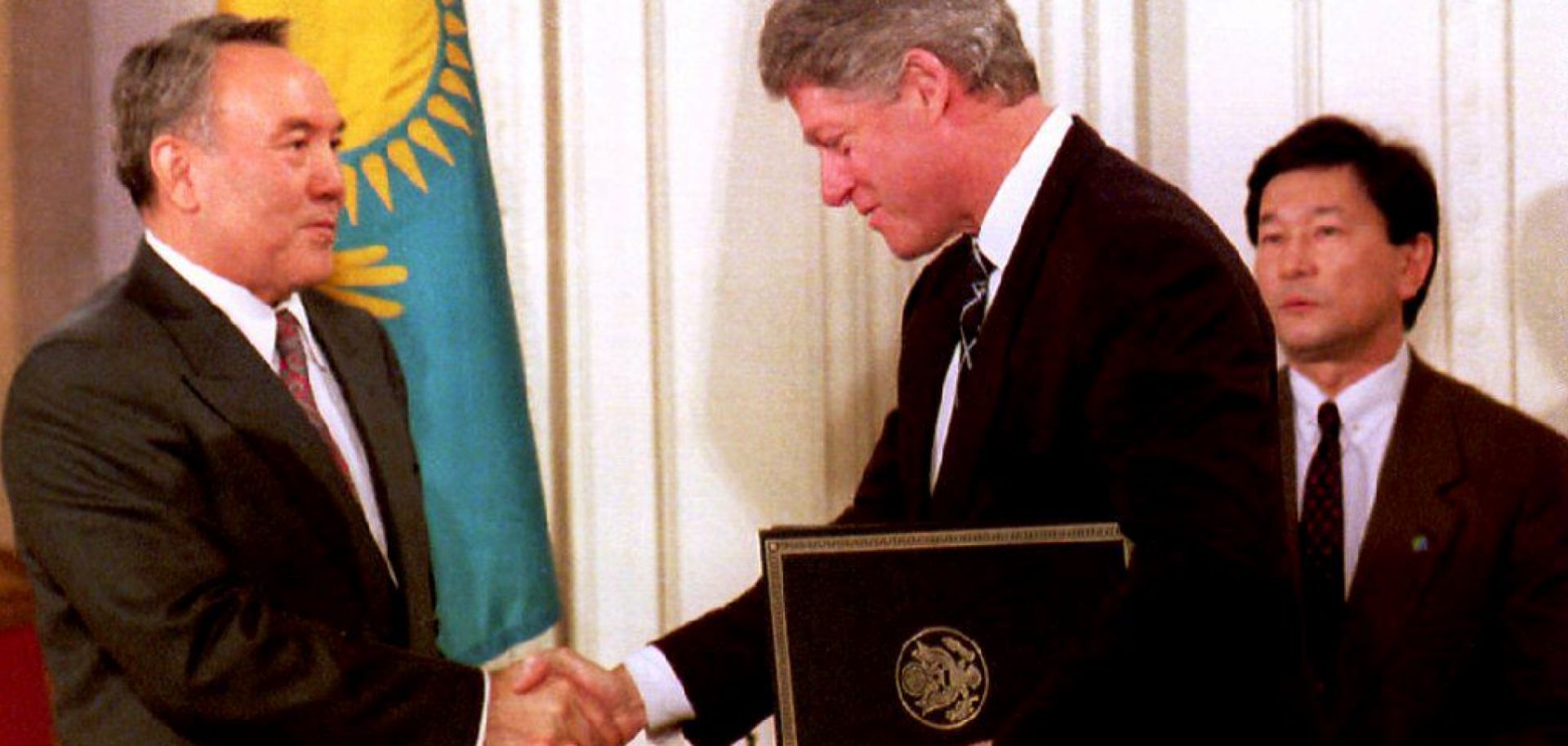ASSESSMENTS
The Nuclear Non-Proliferation Treaty at 50
Apr 29, 2018 | 19:12 GMT

U.S. President Bill Clinton and Kazakh President Nursultan Nazarbayev shake hands at the White House on Feb. 14, 1994, after Nazarbayev presented Clinton with Kazakhstan's accession to the Nuclear Nonproliferation Treaty. Kazakhstan was one of three newly independent states that inherited hundreds of warheads from the former Soviet Union but chose to give them up.
(LUKE FRAZZA/AFP/Getty Images)
Highlights
- The nuclear nonproliferation regime has been remarkably successful in severely limiting the emergence of new nuclear weapons states. The United States has been the key player in these successes.
- Looking ahead, however, growing great power competition, increased degrees of freedom among regional powers, and more ubiquitous knowledge of nuclear technologies and delivery systems are all acting to weaken the treaty.
- Vulnerabilities for proliferation are greatest in the Middle East and Asia-Pacific regions.
- Given the power shifts in these critical geographies, the United States will increasingly be at loggerheads with Russia and China when it comes to ensuring nonproliferation compliance among regional actors.
Subscribe Now
SubscribeAlready have an account?
